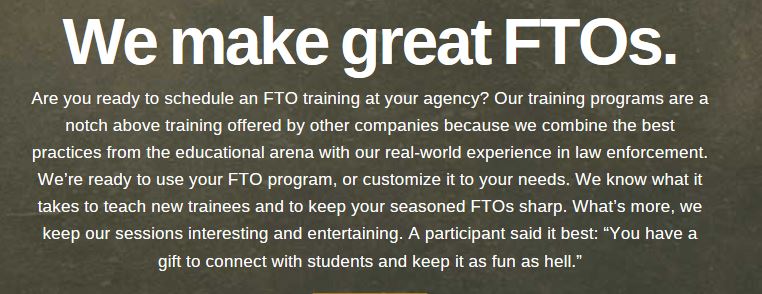Officer Wellness and Nutrition Individual Training
Hosted by: STORM Combatives
Tuition: $199
COURSE SUMMARY:
1-Day Course – This training is an excellent resource that organizations can use to begin the difficult and challenging conversations regarding mental health.
Law enforcement agencies must recognize the link between physical fitness, mental health and the overall well-being of their officers. We can improve the quality of life and productivity of the men and women serving our communities by taking a proactive approach to officer wellness. This training encourages a culture of help-seeking behaviors and provides customized tools for officers to take wellness into their own hands.
Officers can take ownership of their overall well-being by focusing on the 4 pillars of health: Good Nutrition, Exercise, Mental Wellness, and Sleep. These topics are explored in an interactive training environment that address the needs of each individual. Whether you are solely seeking self-improvement, or hope to be a catalyst of positive influence for an entire organization, this course will provide the tools you need to reach those goals.
This training is an excellent resource that organizations can use to begin the difficult and challenging conversations regarding mental health. When officers are able to improve their own health, they are inevitably more resilient to the mental and emotional side effects of a career in law enforcement.
Positive change starts with you. It’s time to OWN-IT!
WHAT TO BRING
Pen and paper/notebook
Comfortable clothing
PAY BY CHECK
Please email stormtraininggroup@gmail.com.
TESTIMONIALS
“Chris is great. There aren’t other courses like this. What I liked most overall was the positive message.”
– Shawn Murphy, Fridley Police Department
“Very knowledgeable, confident, and enthusiastic about topics.”
– Brandon Dorr, Crystal Police Department
“Very knowledgeable and did a nice job of being available for questions at breaks. The creation of a building block for wellness that can be molded by the individual was what I liked most about the training.”
– Cody Hendricks, Shakopee Police Department
“Chris’ ability to teach what he is passionate and knowledgeable about is amazing. What I liked most about the training was fact, common sense based, not trying to sell a system or product, material presented as a whole not a portion.”
– Thomas Gagnon, Anoka Police Department
“This was a very good course and Chris was very engaging. What I liked most was the positive life tips to apply in personal and work life and that he is a knowledgeable instructor.”
– Zach Fecteau, Crystal Police Department
“Chris was very knowledgeable on the topics and how they relate to the real world.”
– Ryan Bohland, Dakota County Sheriff’s Office
“Chris did very well. Extremely knoweldgeable. What I liked most was learning about wellness needs.”
– Zack Schumaker, Owatonna Police Department
“Very knowledgeable in his area of expertise. Good information. What I liked most about the training was the concepts are simple.”
– Pete Stanley, New Hope Police Department
For more information, email stormcombatives@gmail.com or call (651) 245-5525.

 Employee Evaluation: Improving Performance
Employee Evaluation: Improving Performance



